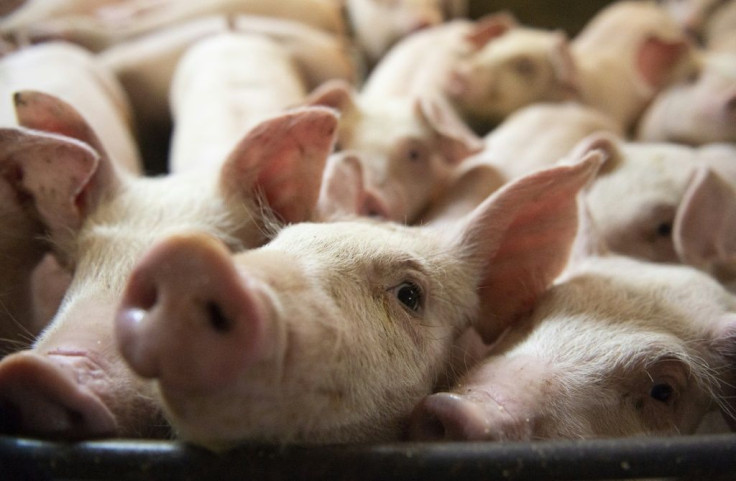China To Resume Canadian Beef, Pork Imports: Trudeau

China has agreed to resume imports of Canadian beef and pork, Prime Minister Justin Trudeau announced Tuesday, signalling a breakthrough in their tense relations.
"Good news for Canadian farmers today: Canadian pork and beef exports to China will resume," Trudeau said in a tweet.
He lauded Canada's new ambassador to China, Dominic Barton, who was appointed in September, and the country's meat industry for working to reopen "this important market for our meat producers and their families."
China had blocked beef and pork shipments from Canada in June, alleging contamination in pork shipments and bogus documents -- claims disputed by Ottawa -- amid an escalating diplomatic row.
It was not clear what exactly convinced Beijing to change tack.
But meat producers said the Canadian Food Inspection Agency would start issuing export certificates immediately for shipments destined for China.
Trade and agriculture ministers Jim Carr and Marie-Claude Bibeau said in a statement that Canada's foreign ministry and food inspection agency "engaged with China" on the beef and pork ban over the past few months.
"We will continue to work closely with beef and pork producers and processors in the coming days and weeks to ensure successful resumption of trade," the pair said in a joint statement.
Prior to the ban, China was Canada's third-largest market for beef and its fifth-largest for pork, according to government data.
In June, China had asked Canada to investigate what it said were false veterinary health certificates attached to a batch of pork, while the official Xinhua news agency said customs officials in the eastern city of Nanjing had found ractopamine in pork shipments.
The feed additive, which boosts the growth of animals, is widely used in the United States but banned in the European Union and China.
'Important step for both countries'
The forgery allegations -- which federal police were called in to investigate -- came after relations between the two nations were strained by Canada's arrest of a senior Chinese telecoms executive and China's detention of two Canadian nationals in apparent retaliation.
Although no official link was made, the pork ban was seen as an escalation in response to Canada's arrest in December of Huawei chief financial officer Meng Wanzhou on a US extradition request related to alleged Iran sanctions violations.
Cattlemen at the time were said to have been puzzled why they were included in the ban.
From the start, Canada has treated the matter as a "technical issue," focusing on proving to Chinese authorities that its meat was safe.
Carr also suggested in June in regards to the forgeries that someone may have illicitly used "the Canadian brand to move product into the Chinese market."
Chinese concerns about supply shortages for Chinese consumers -- after a swine fever outbreak reduced its domestic herd by millions -- may also have been a factor in the decision to end the ban.
"Our long-standing trade relationship with China is very important to both sides and this represents an important step for both countries," commented Canadian Meat Council president Chris White.
He noted that the decision comes on the eve of an industry-led mission to China to work through any lingering customs and shipping issues.
Meng's extradition hearing is set to start in January.
Former Canadian diplomat Michael Kovrig and Canadian businessman Michael Spavor, meanwhile, remain in Chinese custody, accused of espionage -- which Ottawa refutes.
And Beijing continues to block billions worth of Canadian canola sales.
© Copyright AFP 2024. All rights reserved.







